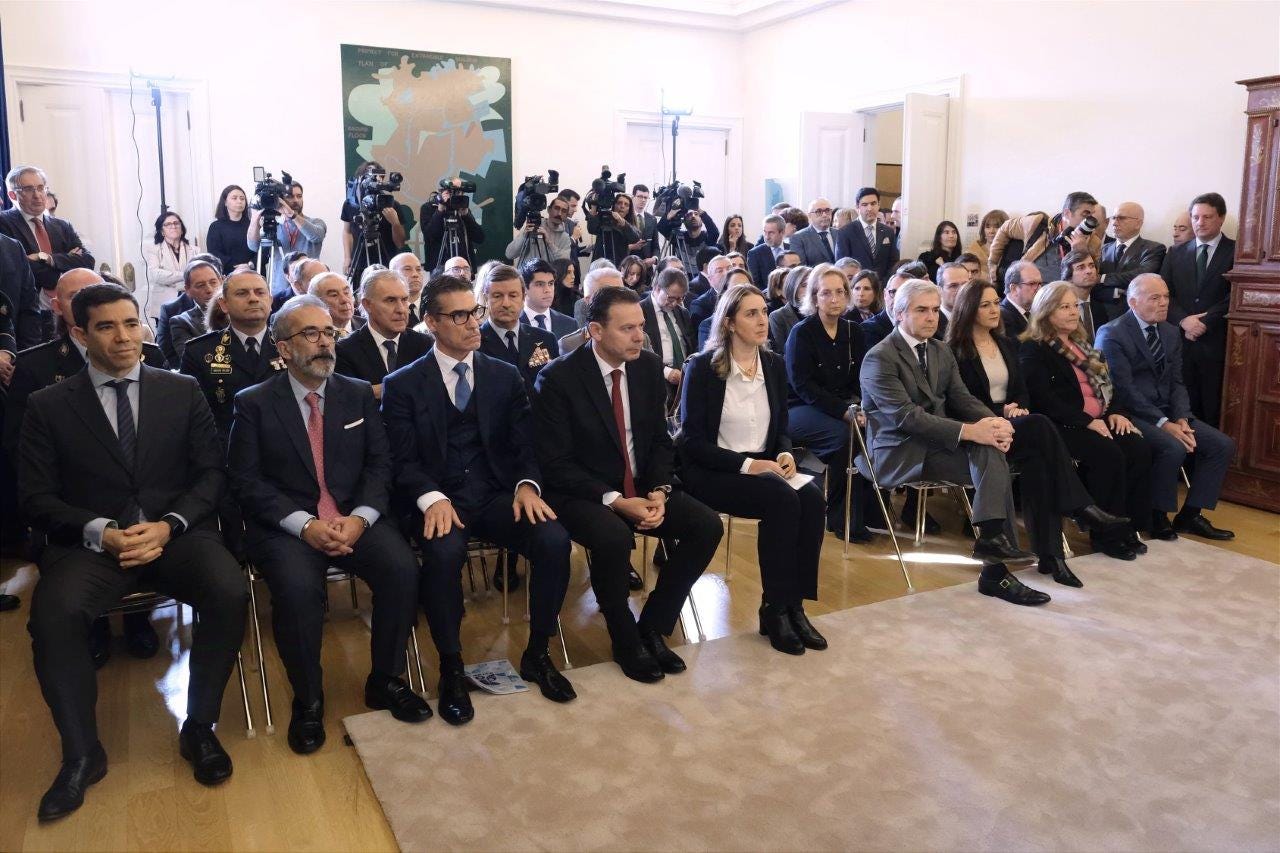PM ‘didn't like seeing’ images of Martim Moniz but rules out racism
He also published an opinion piece about the new year ahead of President Marcelo Rebelo de Sousa's New Year's message before the President.

What?
In his first interview with a newspaper since becoming Portugal’s Prime Minister, Luís Montenegro spoke to Diário de Notícias on its 160th anniversary, addressing topics ranging from national security and immigration to defense and the upcoming presidential elections.
Montenegro expressed concerns about an apparent rise in serious and violent crime, though he noted he has not yet reviewed the provisional data for 2024.
Reflecting on recent police actions, which included individuals being frisked against walls, he admitted discomfort with the visuals. “Visually, I didn’t like seeing it. It’s an unusual situation and not part of daily life,” Montenegro said. However, he clarified that he observed no disrespect for the individuals’ dignity during these operations.
The PM emphasized that he does not link immigration to insecurity. “I have never made an association between immigration and insecurity, and I don’t believe one exists,” he said.
While acknowledging that crime occurs within both Portuguese and immigrant communities, Montenegro defended the police operations as necessary and without bias.
He stated unequivocally that there is “no intent, either from the police forces or the Government, to persecute or stigmatize any community.” Montenegro underscored the need for immigrants, calling them “new Portuguese,” and stressed their vital role in the country’s future, particularly in industries like construction.
“Over the next 30 to 40 years, we will need immigrants,” he said, adding that attracting individuals with the right skills should be a priority.
Security as a National Priority
Montenegro defended the heightened focus on security, calling it fundamental to ensuring freedom. “You can’t let your guard down,” he warned, citing Sweden and Belgium as examples of nations that were once secure but now face serious challenges. He pointed out that feelings of insecurity often arise not only from personal experiences but also from witnessing crimes against others.
Critics of police actions were accused by Montenegro of being out of touch with reality. He dismissed what he described as “profound demagoguery” from commentators who imagine a society needing little to no policing. “We don’t live in a utopia where everything is guaranteed, and no efforts are required to tackle crime and behavioral deviations,” he said, with a note of irony.
On defense, Montenegro acknowledged the possibility of accelerating Portugal’s NATO commitment to allocate 2% of GDP to defense spending, currently targeted for 2029.
“When I took office, we decided to bring this target forward by a year. I reiterate here that we may need to adjust this timeline further,” he said. However, he expressed caution against calls to raise spending to 4% or 5% of GDP, describing such targets as inappropriate.
Presidential Elections
When asked about the 2026 presidential elections and a potential candidacy from Admiral Gouveia e Melo, Montenegro refrained from commenting.
He reiterated his commitment, as leader of the Social Democratic Party (PSD), to supporting a candidate who is a party member, highly capable, and broadly appealing to the nation.
Montenegro’s interview offered insights into his administration’s priorities, focusing on national security, the integration of immigrants, defense investments, and preparations for future political challenges.
Investment is the word of the year
On January 1, PM Montenegro also published article in Jornal de Notícias.
In it, he argued that “(T)he key words for 2025 are investment, investment, investment. Realise public investment. Stimulating domestic, private and business investment. Attracting foreign investment that seeks predictability and security.”
Entitled ‘Portugal on the move’, the article stresses that only with more investment will Portugal be able to “continue to save the welfare state – with concrete and constructive actions, not with empty words, blocks or fear of change”.
Investment, the head of government argues, is essential if the country is to have “hope for the future”.
Investment in three areas: public, internal (private and business) and external investment.




"We don't live in a utopia...". A fine example of Portuguese common sense,